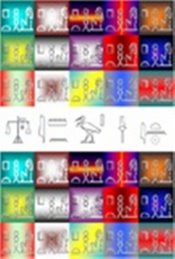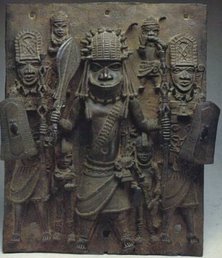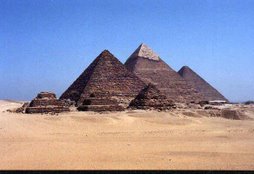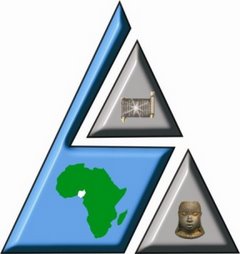"History is a clock that people use to tell their political time of day. It is a compass that they use to find themselves on the map of human geography. It also tells them where they are, and what they are. Most importantly, an understanding of history tells a people where they still must go, and what they still must be". Saunders Redding (1960)
In addition to the time worn assertion that “Nigeria is the Giant of Africa”, more commonly these days, it is not unusual to hear statements like ‘Africa’s success depends on Nigeria’s success’ or ‘where Nigeria succeeds, Africa succeeds’. The growing implication of these statements being that the rest of Africa and indeed the entire African Diaspora is counting on Nigeria to set the stage for the repositioning of the African continent as the seat of creativity and the world’s hub of sustainable innovation.
For many years, I have turned these words over in my mind and inquired at every possible opportunity from a cross section of the beautiful people of Africa, (my people) what informs their belief in the assertion that Africa’s success is dependent on Nigeria’s.
I have gotten responses ranging from outright ignorance of the underlying reasoning to plain blind patriotism. During the course of my investigation, I also tried to inquire into the historical foundations of this well worn assertion. The more educated responses have been that belief in the greatness of the region of Africa that is now known as Nigeria today is inspired by the fact that it had several well established civilizations such as the Benin and Oyo empires whose growth and development were achieved independent of any contact with Europe or Islam and what’s more, this was well before the initiation of the middle passage.
Needless to say as this is common knowledge to all, that the twin occurrences of the middle passage and subsequent colonization reversed whatever achievements Africa had recorded before their initiation.
But what has become even more apparent is that the average Nigerian’s knowledge of the history of the people that are today called Nigerians, does not extend far beyond the coming of the Europeans and the initiation of the middle passage and colonization. This position is even more common with women, (except a handful. No offense is intended, I am merely making a statement based on my findings and at the same time posing a challenge to our womenfolk) who don’t necessarily see the need for a sound appreciation of Africa’s “tru-story” as opposed to its “his-story”.
However, I have to argue with facts unearthed from current research that there is a much more stronger and more powerful reason why this belief in the latent potential of present day Nigerians exists and that this reason not only reinforces and helps to explain why we were able to build the wonderful civilizations of Oyo and Benin that awed Portuguese explorers on their initial expeditions to this region of Africa during the 14th century , but proves that we still retain the potential to create wonders such as the Pyramids of Egypt whose science of construction defies the entire world till this very day.
What current research reveals is that present day Nigerians are descendants of the people who built the ancient civilization of “Kemet” that is now known as “Egypt” today. Yes, what the facts are saying is that our forefathers built the splendid pyramids and temples of Kemet that are in ruins today and it was this same knowledge and ingenuity that was passed down through generations and used in building the many civilizations of Oyo, Nupe, Benin, etc, which was brought about by a mass movement of people from present day Sudan and Egypt who fled under threat of annihilation. From the field of agriculture to astronomy, from the intellectual to the esoteric, the ancient Kemites were well ahead of any of their contemporaries at the time by thousands of years.
There are several categories of proof ranging from linguistics to indigenous Spiritual culture and traditions that can be used to back up these arguments. But evidence of this will be mentioned only in passing as in-depth discussion of these facts is not the purpose of this essay. For local written reference the reader is referred to the opening lines on page one of J.U. Egharevba’s “A Short History of Benin”. (2005) Benin: Fortune and Temperance (Publishing) Co.
For oral reference the reader is directed to seek an interview in this regard with his Royal Highness, the Obong of Calabar Edidem Professor Nat Elijah Henshaw IV failing, or to his oral interview on the N.T.A. television series “The African Pot” hosted by the illustrious Shimite Katung.
For international documentary evidence the reader is referred to Anthony Browders’ “Nile Valley Contributions to Civilization” (1994)Washington DC: Institute of Karmic Guidance as well as several essays written by Professor Kwame Nantanbu, (Emeritus Professor at Kent State University, U.S.A.) particularly his review of Nana Banchie Darkwah’s 2002 book titled “The Africans who wrote the Bible – Ancient secrets Africa and Christianity have never told”.
On questions of the true racial identity of the ancient Kemites (Egyptians), the reader is referred to the report of the 1978 UNESCO symposium titled; “The Peopling of Ancient Egypt and the Deciphering of the Meroitic Script: Proceedings of the symposium held in Cairo from 28 January to 3 February 1974”. Paris: United Nations Educational, Scientific, and Cultural Organization (UNESCO). I provide more robust details in my upcoming book.
Now that the basis of the underlying foundation of the generally accepted assertion that Nigeria is the Giant of Africa has been reasonably well established, in my next article, I now vigorously discuss the implication of this knowledge for the average Nigerian in the face of 21st century challenges which can be broadly grouped into the following four categories;
a) The transformation being brought about by the forces of globalization,
b) The impact of information and communication technologies,
c) Global environmental concerns and
d) The emergence of knowledge-based economies and societies.
Thank you for reading.
HTP
Ausartoamen
However, I have to argue with facts unearthed from current research that there is a much more stronger and more powerful reason why this belief in the latent potential of present day Nigerians exists and that this reason not only reinforces and helps to explain why we were able to build the wonderful civilizations of Oyo and Benin that awed Portuguese explorers on their initial expeditions to this region of Africa during the 14th century , but proves that we still retain the potential to create wonders such as the Pyramids of Egypt whose science of construction defies the entire world till this very day.
What current research reveals is that present day Nigerians are descendants of the people who built the ancient civilization of “Kemet” that is now known as “Egypt” today. Yes, what the facts are saying is that our forefathers built the splendid pyramids and temples of Kemet that are in ruins today and it was this same knowledge and ingenuity that was passed down through generations and used in building the many civilizations of Oyo, Nupe, Benin, etc, which was brought about by a mass movement of people from present day Sudan and Egypt who fled under threat of annihilation. From the field of agriculture to astronomy, from the intellectual to the esoteric, the ancient Kemites were well ahead of any of their contemporaries at the time by thousands of years.
There are several categories of proof ranging from linguistics to indigenous Spiritual culture and traditions that can be used to back up these arguments. But evidence of this will be mentioned only in passing as in-depth discussion of these facts is not the purpose of this essay. For local written reference the reader is referred to the opening lines on page one of J.U. Egharevba’s “A Short History of Benin”. (2005) Benin: Fortune and Temperance (Publishing) Co.
For oral reference the reader is directed to seek an interview in this regard with his Royal Highness, the Obong of Calabar Edidem Professor Nat Elijah Henshaw IV failing, or to his oral interview on the N.T.A. television series “The African Pot” hosted by the illustrious Shimite Katung.
For international documentary evidence the reader is referred to Anthony Browders’ “Nile Valley Contributions to Civilization” (1994)Washington DC: Institute of Karmic Guidance as well as several essays written by Professor Kwame Nantanbu, (Emeritus Professor at Kent State University, U.S.A.) particularly his review of Nana Banchie Darkwah’s 2002 book titled “The Africans who wrote the Bible – Ancient secrets Africa and Christianity have never told”.
On questions of the true racial identity of the ancient Kemites (Egyptians), the reader is referred to the report of the 1978 UNESCO symposium titled; “The Peopling of Ancient Egypt and the Deciphering of the Meroitic Script: Proceedings of the symposium held in Cairo from 28 January to 3 February 1974”. Paris: United Nations Educational, Scientific, and Cultural Organization (UNESCO). I provide more robust details in my upcoming book.
Now that the basis of the underlying foundation of the generally accepted assertion that Nigeria is the Giant of Africa has been reasonably well established, in my next article, I now vigorously discuss the implication of this knowledge for the average Nigerian in the face of 21st century challenges which can be broadly grouped into the following four categories;
a) The transformation being brought about by the forces of globalization,
b) The impact of information and communication technologies,
c) Global environmental concerns and
d) The emergence of knowledge-based economies and societies.
Thank you for reading.
HTP
Ausartoamen





No comments:
Post a Comment